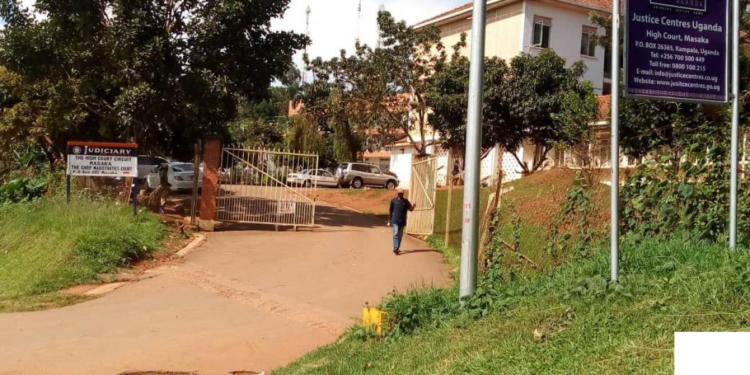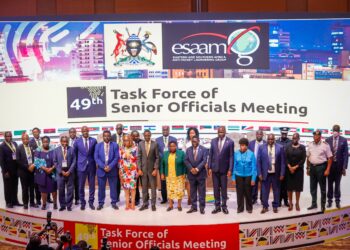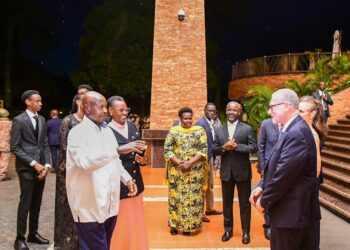The Masaka Chief Magistrates Court registry is overwhelmed by land cases which form the biggest backlog.
Overall, the Chief Magistrate’s registry currently has a case backlog of 179 pending files that have been in the system for over three years.
The Masaka Chief Magistrate Sylvia Nvannungi, the Masaka Chief Magistrate indicates that almost 89 percent of these backlog cases are land civil disputes that arose from the rulings delivered in lower courts.
Speaking to members of the Legal and Parliamentary Affairs Committee who were on tour to assess the working conditions of Judicial officers, Nvannungi observed that the backlog has been building up because the station has only two magistrates.
She explains that the high number of land-related cases demands for deliberate interventions that can streamline the land justice administration systems in the country.
She indicates that in addition to the limited number of senior-level magistrates that can handle these appeals, the station does not have the required financial resources and motor vehicles to facilitate their field visits, hence leading to the pile up of these cases.
Nvannungi appealed to the Parliamentary Legal Affairs Committee to support their demands especially in matters that require them to visit areas of land disputes for proper assessment of evidence.
On the other hand, Nvannungi also observed the need for heightening security around magistrates, arguing that they equally handle highly sensitive matters that can cause serious threats to their lives both at the places of work and at home.
Robbina Rwakoojo, the Chairperson of the Legal and Parliamentary Affairs Committee indicated that they appreciate the concerns raised by the judicial officers, saying that it will shape debate during the interface with the relevant authorities, towards forging a way of improving the situation.
However, to address the challenge of transport for the judicial officers, Wilfred Niwagaba, the Member Parliament for Ndorwa county proposes that government adopt the idea of a vehicle co-ownership scheme for all its civil servants to reduce public expenditure.
Under the scheme, an officer is allowed to borrow money for procuring vehicles for their respective official duties and are allowed to retire with the cars, instead of the government entirely taking the burden of purchasing vehicles.
Do you have a story in your community or an opinion to share with us: Email us at editorial@watchdoguganda.com













